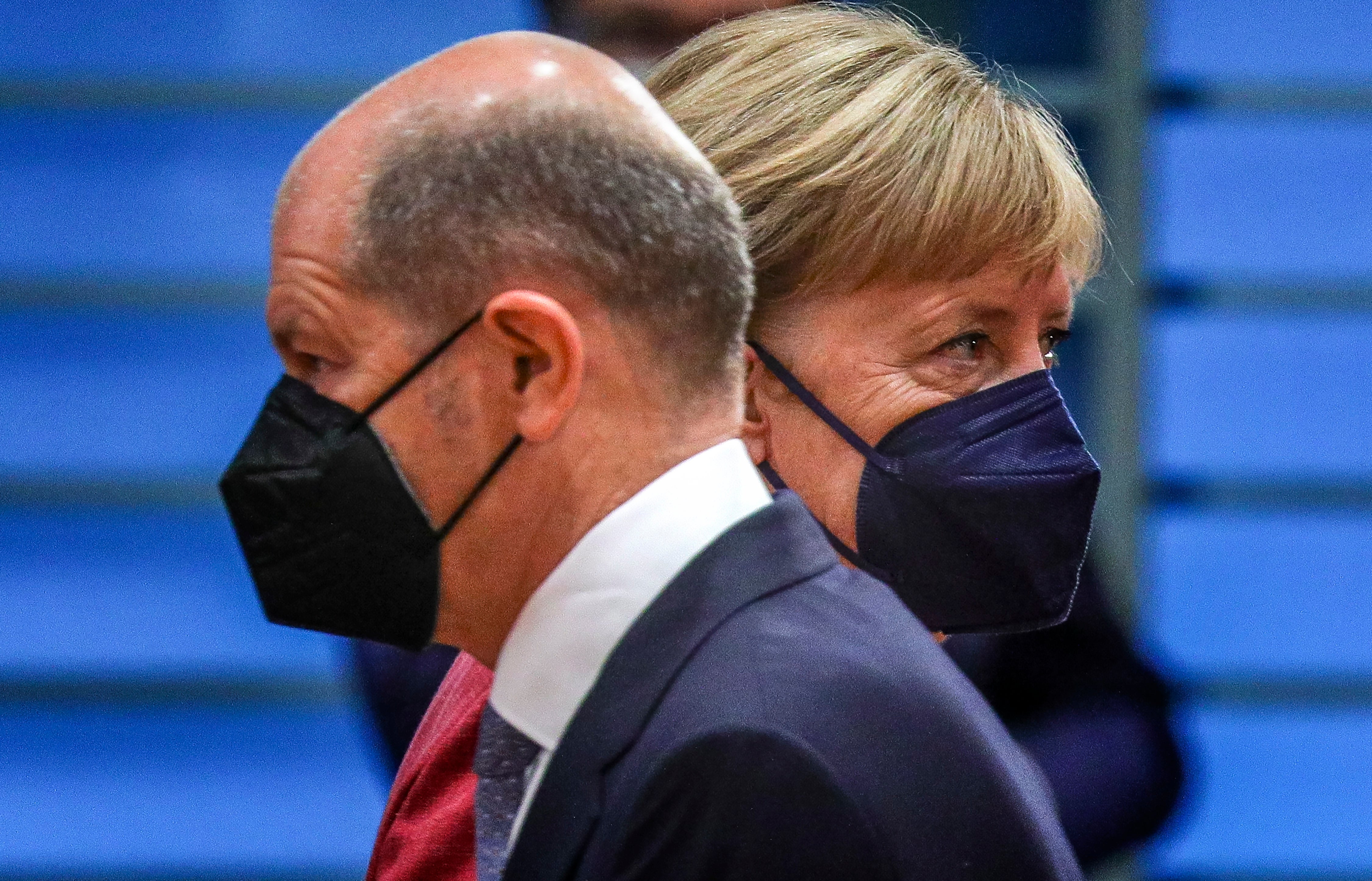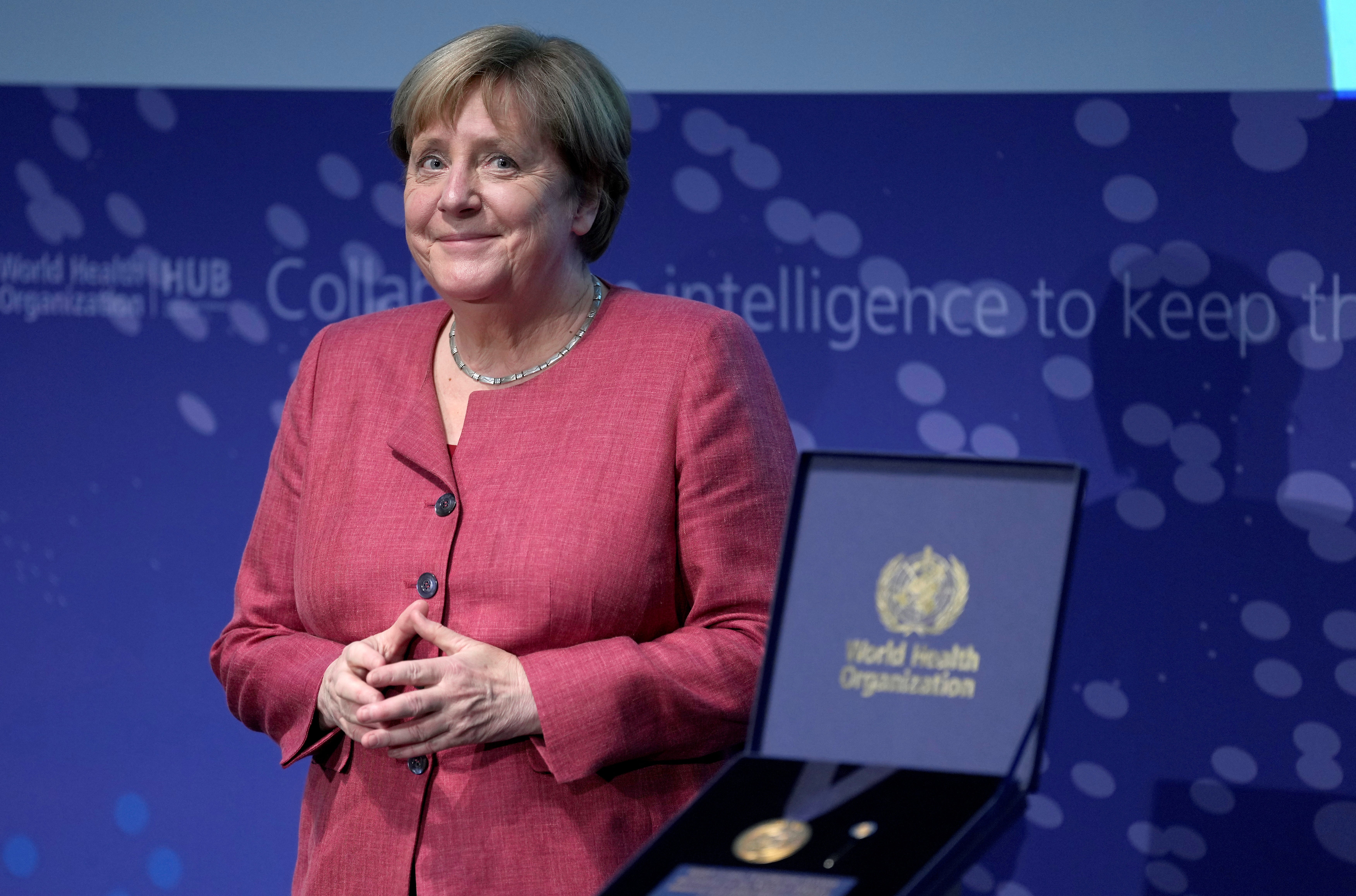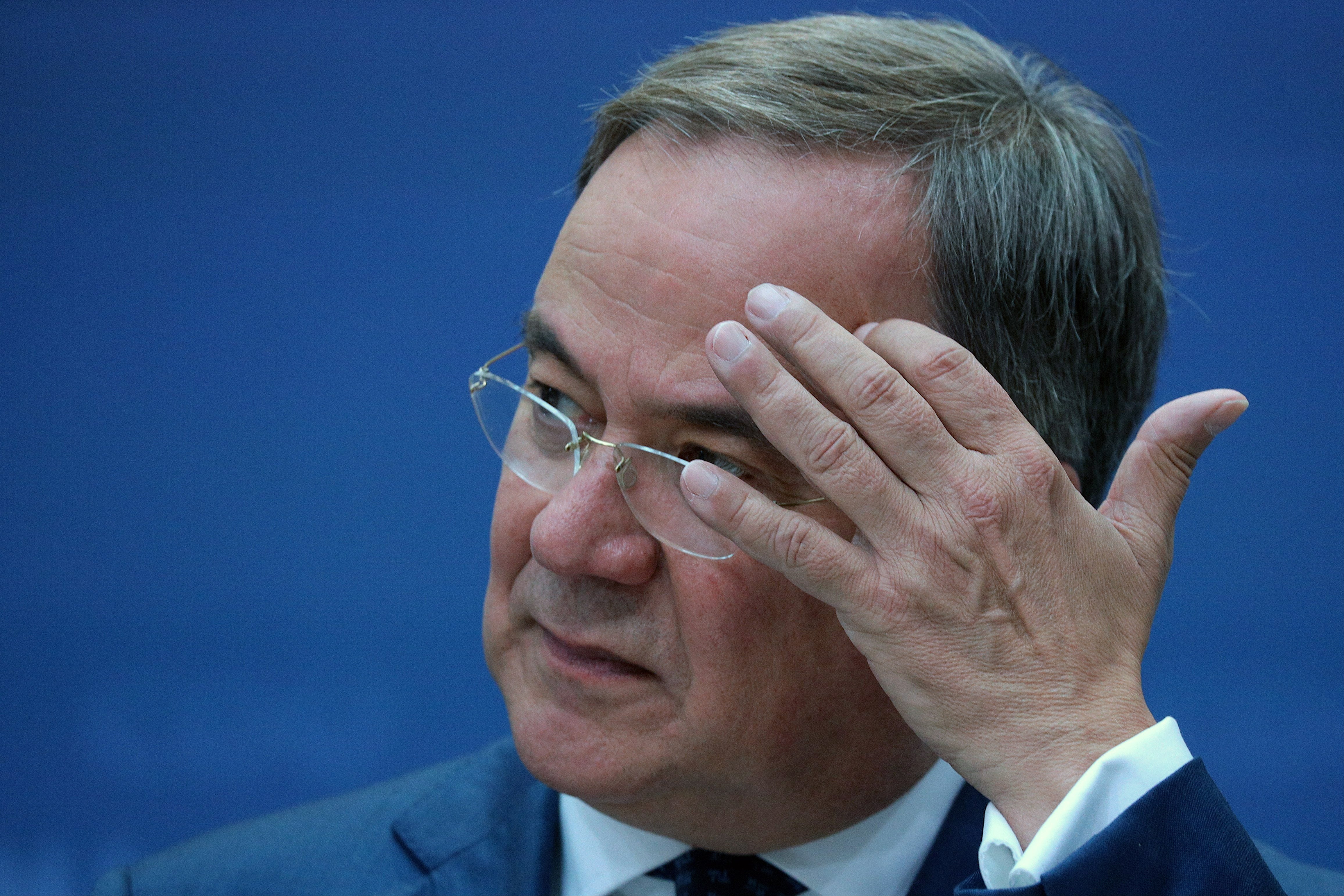German elections: As Merkel stands down, the SPD’s Scholz emerges as favourite for chancellor
Olaf Scholz’s center-left Social Democrats are at the opposite end of the political spectrum to Merkel’s Christian Democrats

Your support helps us to tell the story
From reproductive rights to climate change to Big Tech, The Independent is on the ground when the story is developing. Whether it's investigating the financials of Elon Musk's pro-Trump PAC or producing our latest documentary, 'The A Word', which shines a light on the American women fighting for reproductive rights, we know how important it is to parse out the facts from the messaging.
At such a critical moment in US history, we need reporters on the ground. Your donation allows us to keep sending journalists to speak to both sides of the story.
The Independent is trusted by Americans across the entire political spectrum. And unlike many other quality news outlets, we choose not to lock Americans out of our reporting and analysis with paywalls. We believe quality journalism should be available to everyone, paid for by those who can afford it.
Your support makes all the difference.The soft-spoken, short, balding 63-year-old German who turned himself into a carbon copy of Angela Merkel to quietly drift to the top of voter surveys has become – rather improbably – the favourite to become the country’s next chancellor after the elections on 26 September.
Olaf Scholz, Germany’s dour finance minister and vice-chancellor in the current grand coalition government, and his often quarrelsome centre-left Social Democratic Party (SDP), are at the opposite end of the country’s political spectrum to Merkel’s rival conservative Christian Democrats (CDU), even though they were forced into two consecutive loveless power-sharing arrangements.
Even without charisma, Scholz has nevertheless pulled a rabbit out of the hat by convincing a growing share of German voters that he is the natural heir to Merkel – instead of his even more colourless opponent Armin Laschet, who is the standard-bearer from Merkel’s CDU party. The still-popular 67-year-old chancellor is retiring unbeaten after four election victories and 16 years in power.
The SPD, fed up with being a junior coalition partner to the conservatives, has unexpectedly moved ahead of the CDU in opinion polls for the first time in 15 years and is now projected to win about 22-25 per cent of the vote in three weeks’ time, compared with 20-22 per cent for the conservatives. The Greens are forecast to win about 17 per cent of the vote. A centre-left coalition led by the SPD together with the pro-environment Greens and pro-business Free Democrats (FDP) is now seen as the most likely outcome.
“If Scholz had any sense of humour he might be able to squeeze out a smile about the way he has been imitating Merkel’s political style all the way down to her hand gestures,” says Gero Neugebauer, a political scientist in Berlin who knows the humourless Scholz well. “He’s beating Merkel’s party into the ground right now by using her own weapons against them. He’s putting the voters asleep by talking calmly and quietly about stability, continuity, security and about ideas that generally appeal more to conservative voters. His strategy is just don’t rub anyone the wrong way – just like Merkel did again and again.”
If Scholz had any sense of humour he might be able to squeeze out a smile about the way he has been imitating Merkel’s political style all the way down to her hand gestures
Scholz has indeed taken a page from Merkel’s proven playbook with his deliberately bland campaign – promising little more than “stable pensions”, “fair rents”, a higher minimum wage and more for climate protection. His “don’t rock the boat” campaign has struck a chord with trepidatious German voters with their deep aversion to change, who have in general been satisfied with the way the country has been run under Merkel’s right-left “grand coalition” made up of her conservatives and Scholz’s SPD for 12 of the last 16 years.
It has been an era of unprecedented prosperity for Germans despite the waves of turmoil ranging from the global financial crisis, the near collapse of the eurozone, the Syrian refugee crisis, Brexit, the Covid-19 pandemic and the debacle of the Afghanistan withdrawal.
It’s an alarm clock that should wake us all up to get out there and fight. We’ve got to take the gloves off
Reflecting that seemingly insatiable yearning for stability and a wariness towards charismatic leaders following the unparalleled turbulence from the Nazi era and the Second World War, Merkel is the third conservative post-war German chancellor to win four terms.
“Scholz is out there doing a copyright piracy act, pretending that he’s up to inheriting the job from Merkel, but he’s just an imitation,” says Friedrich Merz, a leader in the CDU who was beaten by Laschet for the party leadership. “We haven’t done a very good job ourselves in recent weeks and the weak polls are the result. It’s an alarm clock that should wake us all up to get out there and fight. We’ve got to take the gloves off.”
Scholz, whose candidacy was at first laughed about in Berlin as a long shot when he first announced it a year ago, has rather incredibly managed to move into the lead in all major voter surveys after lifting the party by about 10 percentage points from a distant third at around 15 per cent in the polls. He has skilfully positioned himself as the only candidate in the race who can claim the mantle of governing as the most senior SPD minister in Merkel’s government during that golden era – even though he has been rather undistinguished as finance minister.

“He’s got a decent reputation as a political administrator, as finance minister and his main achievement may be that there aren’t any scandals in his past or skeletons in his closet,” says Neugebauer. “He’s dropped the usual left-leaning language and won’t be caught dead talking about ‘social justice’ or ideas that appeal to the party’s left wing. He’s kept them silent for now.”
Scholz, who has been uncharitably nicknamed “Scholz-o-mat” over his penchant for spouting rapid-fire monotone answers in a machine-like way, scored well with voters in a major TV debate earlier this week with a series of Merkel-style calm, collected and mild-mannered answers. Incredibly, he even once invoked Merkel’s name in the middle of the debate for his cause by saying: “The wish of the chancellor and me is that it should be possible”. It came during an exchange about whether all train travellers should have to prove they are either vaccinated, have a negative coronavirus test result, or have recovered from the disease. Laschet took a different position, saying it would be logistically impossible to control millions of train travellers every day.

An exasperated Laschet, the state premier of North Rhine-Westphalia who has no political experience outside the state, at one point even accused Scholz of “trying to sound like Frau Merkel”. Scholz retorted with one of the best quips of the evening: “I sound like Olaf Scholz.”
Scholz launched his campaign with the slogan “Most people know who I am”, which eerily echoes Merkel’s own “You know me” chant from her previous runs. He was recently even photographed for the Sueddeutsche Zeitung newspaper, wordlessly copying Merkel’s rhombus-shaped hand gesture.
It was all evidently a bit too much this week for Merkel, who broke her silence after largely staying out of the campaign, blasting Scholz by name for refusing to rule out a future coalition with the far-left Linke party – which because of its opposition to Nato has until now been ostracised from any federal government.
“There is a massive difference between me and Olaf Scholz when it comes to Germany’s future,” Merkel said in Berlin. “With me as chancellor, there would never be a coalition with the Linke.”
Scholz shrugged off the attacks, responding on Thursday as Merkel might have herself: “I’ve been working together happily and successfully with the chancellor for many years now. In these difficult times, I believe it’s important to work together politically to move forward. And I think that’s exactly what we’re going to do.”



Join our commenting forum
Join thought-provoking conversations, follow other Independent readers and see their replies
Comments